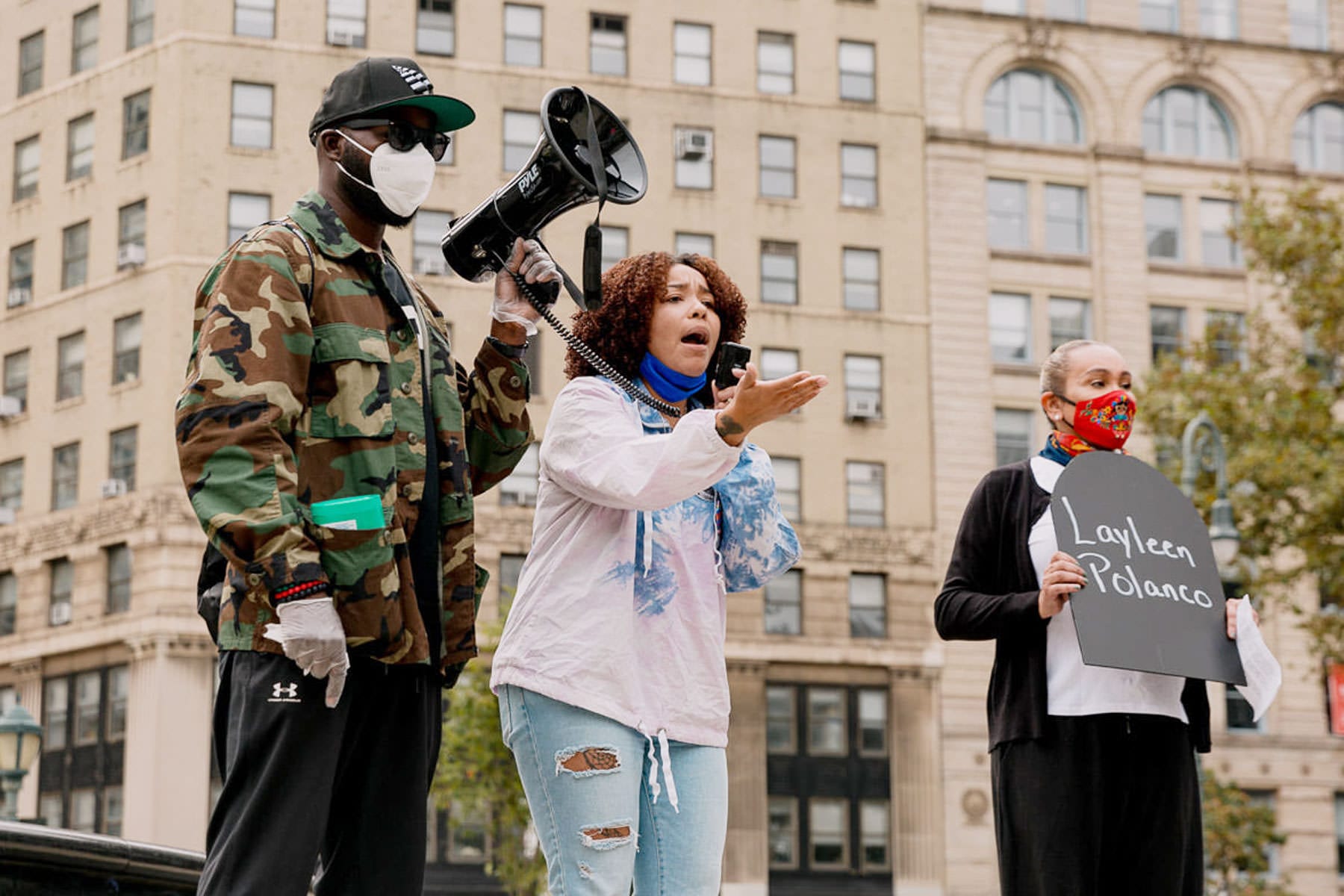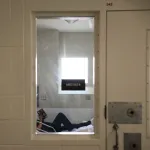The video footage showing the last hours of Layleen Xtravaganza Cubilette-Polanco’s life changed everything.
On June 7, 2019, Cubilette-Polanco suffered a seizure in solitary confinement at Rikers Island jail and died. Video footage obtained by her family’s lawyers revealed that guards, who were required to check on her every 15 minutes, tried to wake her by knocking on her door for approximately an hour and a half before opening her cell and calling for medical backup. Officers are seen laughing outside her cell moments before entering to find her unresponsive.
Cubilette-Polanco’s death and the revelations from the footage outside her cell spurred nationwide calls for change, ultimately leading to a settlement with her family, punishment for staff and the promise of reforms. Among them was a promise to end solitary confinement in New York City jails.
But four months after the city’s self-imposed deadline to end solitary confinement, the Board of Corrections that oversees city jails has yet to present a plan to the public. A working group told NBC News in June it would unveil a plan to halt the practice in September 2020 and vote on it by the end of October.
Cubilette-Polanco’s sister, Melania Brown, says no one from the city has reached out to her to explain why.
“I am extremely pissed off with this situation,” Brown said. “Solitary confinement is no place for no human. They’re already incarcerated, and they’re already doing their time. It’s bizarre to me. It’s crazy to me that you lock somebody up on top of them already being locked up.”
Board of Corrections officials declined multiple interview requests from The 19th. But in a statement, Executive Director Meg Egan said the board has submitted a proposed rule to the city’s law department that replaces solitary confinement with a model that “prioritizes safety” and “transparency.”

“Our hope is to quickly resolve any issues, receive certification from the Law Department, and start hearing from the public,” Egan said. “This process has taken longer than anyone desired, but we believe the final rule will reflect a shared desire to transform restrictive housing in the New York City jail system.”
The Board of Corrections, charged with independently overseeing the city’s jails, has argued that putting together a plan for ending solitary requires time to get buy-in from officers and ensure the safety of staff and those incarcerated.
Advocates, however, say that plan lacked accountability metrics and that the Board has repeatedly blown past its deadlines.
“It infuriates me because the people who have the power to stop this abuse and commit to ending it have not done anything,” said Anisah Sabur, an organizer with the #HaltSolitary campaign in New York.
With no updates from the Board of Corrections, members of the New York City Council introduced a bill that would ban the practice in November.
Sabur and other advocates presented the Board of Corrections with their own 19-page plan for ending solitary in October 2019 that they say answers safety concerns. That plan would require every person in jail to be granted at least 14 hours outside a cell a day and that confinement be used as a last resort for safety reasons for hours instead of days.
“How do you address the issue when someone is having a bad day?” Sabur asked. “Do you really take them and put them in a box alone for 23, sometimes 24, hours a day, for days, weeks, months, years and leave them there?”
Sabur was incarcerated at Rikers Island in 1989 on a drug charge and was placed in solitary confinement less than a week later for fighting. Within three days in solitary, she said, her mental health had severely deteriorated.
“I started to talk to dead people and think that it was my time to die, really thinking about ways that I could just end it, because I felt like I was never getting out of jail, but on top of that I was never getting out of solitary,” she said
LGBTQ+ advocates say the death of Cubilette-Polanco, a transgender woman, highlights the ways that the criminal legal system fails transgender women of color in particular, who face staggering rates of employment discrimination and often wind up trapped in the prison system.
The Afro-Latinx woman was 27 when she was sent to Rikers after failing to make $501 bail dating back to 2017 prostitution charge. An internal investigation by the Board of Corrections last year revealed that in the days leading up to her death, she was hospitalized after showing “radical changes in behavior” and deteriorating mental health. During that time, Cubilette-Polanco reportedly charged at a guard.
Due to safety concerns stemming from the guard incident, staff recommended Cubilette-Polanco be sent to solitary confinement. But a jail psychiatrist refused to sign off on the transfer, noting that Cubilette-Polanco had a “seizure disorder.” The report states that staff found another physician to authorize the move.
It infuriates me because the people who have the power to stop this abuse and commit to ending it have not done anything.
Anisa Sabur
Days after the video footage of the officers outside her cell was released, New York City Mayor Bill de Blasio announced that the city was ending solitary confinement, calling Cubilette-Polanco’s death a tragedy and recommitting to previous promises to close Rikers Island. De Blasio’s office, asked repeatedly to comment for this article, deferred questions to the New York City Department of Corrections.
In August 2020, the city agreed to pay $5.9 million to Cubilette-Polanco’s family in a settlement for their wrongful death claim, the largest for a death in Rikers Island history.
Still, Brown said that without an end to the practice of solitary, there is not justice for her sister.
“That’s the last place my sister took her last breath,” Brown said. “That will be the beginning of justice for my sister, not even the full, but it will mean a lot. I will feel like a weight has lifted off my shoulders. I will feel like my sister didn’t die in vain, but that her death will protect many others and save many other lives.”






